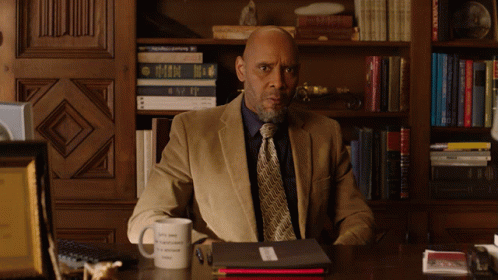Can godly people thrive in ungodly systems without compromising? Genesis 47 tackles this question head-on as Joseph masterfully settles his family in Egypt while simultaneously restructuring the entire Egyptian economy during devastating famine. The chapter opens with five brothers standing before Pharaoh and closes with Jacob extracting a sacred promise about his burial.
Between these bookends, we witness economic policies that consolidate Pharaoh's power, special treatment for priests, and exceptional prosperity for Jacob's family in Goshen.
This isn't just ancient economic history—it's a masterclass in maintaining distinctive faith identity while engaging pragmatically with surrounding culture. The chapter challenges us to consider what it means to be "in the world but not of it" in our own complex societies.
The Choreography of Settlement and Systems
Genesis 47 moves with the practical precision of establishing sustainable arrangements. "Joseph settled his father and his brothers in Egypt and gave them property in the best part of the land." This tangible provision sets the stage for everything that follows. The pattern is revealing:
Family settled → Leadership connections established → Economic crisis managed → Institutional arrangements formalized → Legacy secured
This isn't just narrative progression – it's exposing something profound about faith in complex social systems. Godly living requires both distinctive identity and practical engagement. Each scene builds upon the previous one, creating an intricate picture of how believers can maintain integrity while navigating imperfect human institutions.
Breaking Down the Chapter
Verses 1-6: Joseph's brothers meet Pharaoh and receive Goshen
Verses 7-10: Jacob blesses Pharaoh in a remarkable role reversal
Verses 11-12: Joseph settles his family in the best region
Verses 13-26: Joseph's economic policies during the famine
Verses 27-31: Jacob's prosperity and final burial request
But here's what's fascinating – notice the dual narrative?
The chapter simultaneously tracks Israel's prosperity in Egypt and Egypt's transformation under Joseph. It moves from introduction to blessing, from settlement to restructuring, from immediate needs to long-term arrangements. Throughout, Joseph maintains the distinctive identity of his family while serving effectively in a pagan system.
The Human Element: Jacob's Dying Request
When Jacob approaches the end of his life, we witness a poignant moment of faith extending beyond death. "Do not bury me in Egypt, but when I rest with my fathers, carry me out of Egypt and bury me where they are buried" (Genesis 47:29-30).
This is revolutionary. The same man who has seen God's blessing in Egypt refuses to make it his final resting place. Jacob has evolved from focusing on immediate prosperity to maintaining long-term covenant identity. His request demonstrates that genuine faith holds the tension between appreciating present provision and maintaining future perspective.
WALK THRU INSIGHT MOMENT
"Jacob blessed Pharaoh, and then went out from his presence. The less is blessed by the greater." — Hebrews 7:7
Don't miss this stunning scene: a 130-year-old nomadic shepherd blessing the most powerful ruler on earth. In the ancient world, blessing flowed from greater to lesser, yet here Jacob blesses Pharaoh—twice! (verses 7 and 10)
This isn't just an elderly man offering good wishes. It's a dramatic enactment of Abraham's original covenant: "I will bless those who bless you...and all peoples on earth will be blessed through you" (Genesis 12:3). Jacob, despite his dependence on Egyptian hospitality, operates from a position of spiritual authority because he carries the covenant blessing.
Even more remarkably, Pharaoh asks Jacob's age, leading Jacob to reflect on his "few and difficult" years. This exchange reveals a profound truth: true spiritual authority comes not from perfect circumstances but from faithful perseverance through difficulties while maintaining covenant identity.
Christ as our Administrator
Genesis 47 reveals Christ as our perfect Administrator, managing both our spiritual and material needs with divine wisdom. Joseph's multilayered administration during the famine—securing his family's welfare while serving Egypt's interests—foreshadows how Christ administers God's purposes in a fallen world.
The parallels are striking. Just as Joseph provided his family with "the best of the land" while still functioning within Egyptian systems, Christ provides abundantly for His people while navigating the realities of a broken world. Joseph's economic administration saved lives through wise resource management; Christ's spiritual administration saves souls through the wise application of grace.
Most powerfully, Joseph's careful distinction between the priests of Egypt (who retained their land) and ordinary citizens mirrors how Christ maintains His church as a distinct community within broader society. The church, like Israel in Goshen, operates according to different principles while still engaging with surrounding culture.
Jacob's insistence on burial in Canaan despite prosperity in Egypt points to Christ's reminder that our true citizenship is in heaven. Like Jacob, we may experience God's provision in "Egypt," but Christ calls us to remember our true homeland and final destination, maintaining covenant identity even while receiving present blessings.
WALK THRU TRIVIA CHALLENGE
Question: During the famine in Genesis 47, what percentage of all produce did Joseph collect as tax after restructuring Egypt's economy?
A) 10 percent
B) 20 percent
C) 25 percent
D) 50 percent
Check your answer below!
Answer: B) 20 percent
Genesis 47:24 says, "But when the crop comes in, give a fifth of it to Pharaoh. The other four-fifths you may keep as seed for the fields and as food for yourselves and your households and your children." One-fifth equals 20 percent.
THE ECONOMIC POLICIES OF JOSEPH
Genesis 47:13-26 details Joseph's comprehensive economic restructuring during the famine—a section often overlooked in casual reading. The progression is sobering:
First, Joseph collected all the money in exchange for grain (v.14)
When money failed, he accepted livestock as payment (v.16-17)
Finally, people offered their land and themselves as servants (v.19-20)
By the end, "Joseph bought all the land in Egypt for Pharaoh" except for the priests' land. He then instituted a permanent 20% tax on all produce.
This passage raises complex questions about centralized power, economic justice, and the role of believers in imperfect systems. Was Joseph's policy exploitative or life-saving? The text presents it positively—the people themselves say, "You have saved our lives" (v.25).
Here's the transformative truth: Sometimes faithful stewardship requires making difficult pragmatic decisions within imperfect systems. Joseph didn't create an idealized economy; he managed a devastating crisis using available structures while ensuring everyone survived.
What's most striking is the dual narrative: while Joseph was centralizing power in Egypt, Israel was "growing in number" and "acquiring property" in Goshen (v.27). They maintained their distinct identity while still engaging with and even benefiting from the surrounding system.
YOUR GOSHEN OPPORTUNITY
The special region called Goshen where Israel settled offers a powerful metaphor for faithful living in complex societies. Goshen was simultaneously:
In Egypt geographically but distinct culturally
Under Pharaoh's authority but maintaining its own practices
Experiencing prosperity while maintaining separate identity
This paradoxical position—in but distinct, under authority yet flourishing in identity—captures the essence of what Jesus later described as being "in the world but not of it."
Like Israel in Goshen, we often find ourselves embedded in systems and societies that don't share our values or ultimate allegiance. The question isn't whether to engage or withdraw completely, but how to maintain distinctive identity while still functioning effectively within broader structures.
The lesson of Goshen is that distinctive faith doesn't require complete separation from surrounding culture. Israel flourished in Egypt for generations without assimilating. They maintained their practices, preserved their genealogies, and remembered their covenant promises—all while engaging productively with the society around them.
Your Turn to Walk Through
As you read Genesis 47 again (and I encourage you to do so), consider:
How does Joseph's dual role—caring for his family while serving Egypt—challenge your thinking about faith and public engagement?
Where do you see yourself in this story—among those navigating Goshen-like tension between faith identity and cultural involvement?
What "burial request" might represent your own commitment to covenant identity beyond present circumstances?
Remember, this isn't just an ancient account of settlement and economics—it's a pattern of how believers navigate complex social systems while maintaining distinctive faith identity.
Join the Conversation
Genesis 47 speaks powerfully to the perennial question of how believers engage with broader society. Like Joseph's family, we often find ourselves benefiting from systems that don't share our ultimate values. We navigate the tension of being blessed in "Egypt" while remembering we belong to another kingdom.
Giving your life to Jesus doesn't extract you from complex socioeconomic systems; it transforms how you function within them. It means maintaining distinctive identity like Israel in Goshen while still engaging productively with surrounding culture. It means seeking both the welfare of your faith community and the broader society in which you're placed.
The question isn't whether you'll participate in imperfect human systems—we all do. The question is whether you'll navigate them with the shrewd faithfulness of Joseph, who served effectively without compromising his ultimate allegiance, and with the forward-looking perspective of Jacob, who enjoyed present blessings while maintaining his covenant identity.









